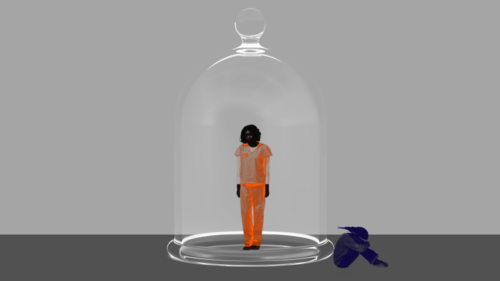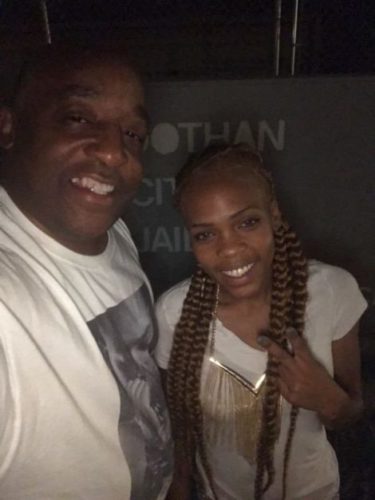What It Costs to Give Black Mothers a Second Chance
Share
Explore Our Galleries
Breaking News!
Today's news and culture by Black and other reporters in the Black and mainstream media.
Ways to Support ABHM?
By Katherine Krueger, theroot.com

Illustration by Elena Scotti/Fusion/GMG, photos via Shutterstock
When Sheritha Scott found out about National Mama’s Bailout Day, she had reason not to trust it.
She heard that local organizers were paying bail for mothers and caretakers in time for Mother’s Day as part of a nationwide initiative, but she was worried that it was all a trap by the police. She feared she would turn herself in to make good on the warrants hanging over her head—all of them from traffic violations—only to be torn from her children.
“I’ve just been running for so long,” Scott, a 28-year-old single mother of five, told Fusion.
The last time she was hauled into the Houston County city jail in Dothan, AL, a local cop had pulled her over before she even left a store parking lot. (The officer had pulled Scott’s sister over just the day before in the same car.) Scott, who was charged with driving with a suspended license, had to call her mother to come pick up her young children, who were in the back seat.

southernersonnewground.org
Scott recounted being held in the city jail in Dothan, a town of around 70,000 not far from the Florida state line, for more than 10 days because she couldn’t afford bail. Finally, her then-husband, who Scott says regularly abused her during their relationship, scraped together $800 in bail money so she could take care of the kids.
The idea of going to jail also brought back bad memories of being incarcerated for 280 days in 2013 and 2014 over misdemeanor traffic violations in Florida. That’s when she lost custody of her kids, the oldest of whom is now seven. While she has since won back custody of two children, her mother maintains custody of the other three….
“Even just one night in that place would have broken me down,” Scott said. “By getting this over with, this is me keeping my promise to my children that mommy will never go anywhere.”…
The Bailout Day initiative came out of a January meeting of 25 black-led organizations who wanted to take action around the issue of bail reform, where racial disparities are stark. Three out of five people who are held in jails—for an average stay of 23 days—remain behind bars simply because they’re too poor to post bail, a 2015 study from the Vera Institute of Justice found. Black people are jailed four times as often as white people, and black women alone make up 44% of the country’s jail population.
Scott was one of dozens of women freed across the country as part of the Bailout Day…. The groups raised a stunning $250,000 to buy the freedom of black women in Atlanta, Oakland, Montgomery, and beyond as they await trial.
Read the entire article here.
Read more Breaking News here.












Comments Are Welcome
Note: We moderate submissions in order to create a space for meaningful dialogue, a space where museum visitors – adults and youth –– can exchange informed, thoughtful, and relevant comments that add value to our exhibits.
Racial slurs, personal attacks, obscenity, profanity, and SHOUTING do not meet the above standard. Such comments are posted in the exhibit Hateful Speech. Commercial promotions, impersonations, and incoherent comments likewise fail to meet our goals, so will not be posted. Submissions longer than 120 words will be shortened.
See our full Comments Policy here.